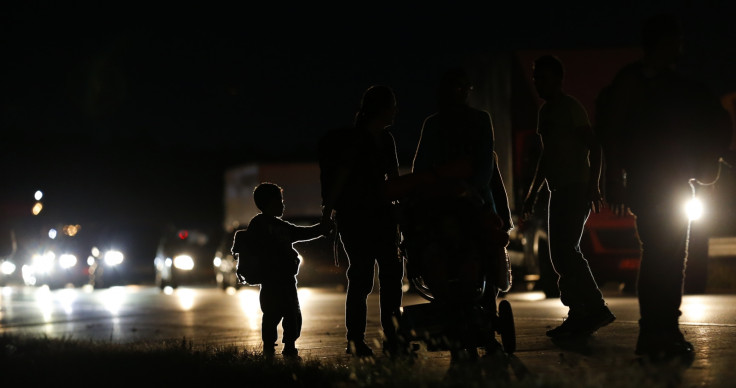Migrant crisis: Hungary sends buses to transport migrants to Austrian border

Hungary has announced it will send buses to transport migrants to the Austrian border after hundreds of desperate people started marching down a motorway towards the border following a stand-off with police in Budapest. Around 1,200 migrants began making the 106-mile journey to the border on Friday 4 September, defying official efforts to transport them to reception centres and register them in Hungary.
The surprise move was announced on Friday (4 September) evening by Prime Minister Viktor Orban's chief of staff, Janos Lazar, who said Hungary would offer buses to those walking along the main motorway to Vienna, and migrants who are still at Budapest's Keleti railway station. Lazar said the buses would take them to the small border town of Hegyeshalom, but added that he was not certain that they would be allowed into Austria, as its government had not yet responded to the news.
"We are taking this step so Hungary's transportation is not paralyzed during the next 24 hours," Mr Lazar said. "This does not automatically mean that they can leave the country. We are waiting for the Austrian government's response."
Earlier the same day, hundreds of migrants broke through police riot lines and escaped along railway tracks in the town of Bicske, 20 miles outside Budapest. Elsewhere, police chased around 300 migrants who had fled a holding centre in the southern town of Röszke, on the border with Serbia.
The scenes of chaos erupting across the country prompted the Hungarian parliament to declared a "state of crisis caused by mass immigration", while European Union states continue to struggle to agree on the best way to deal with the huge influx of people. A record 320,000 refugees and migrants have crossed EU borders so far this year, with many using perilous sea routes across the Mediterranean to Greece and Italy. Some 107,500 arrived in July alone, while more than 2,600 are believed to have died at sea since January.
© Copyright IBTimes 2025. All rights reserved.



















